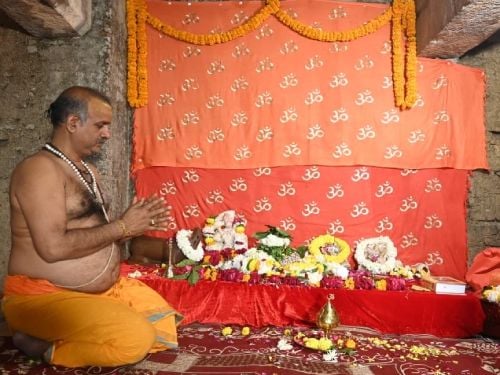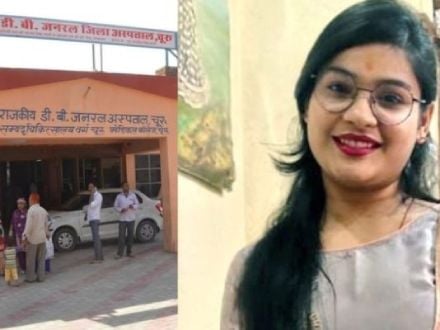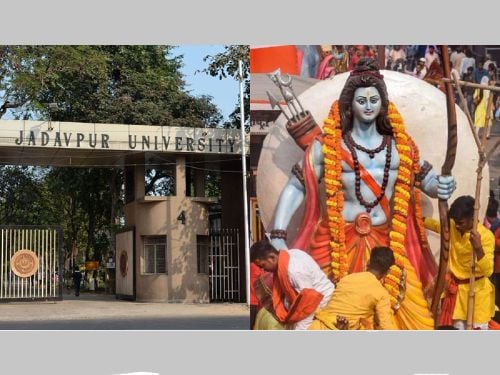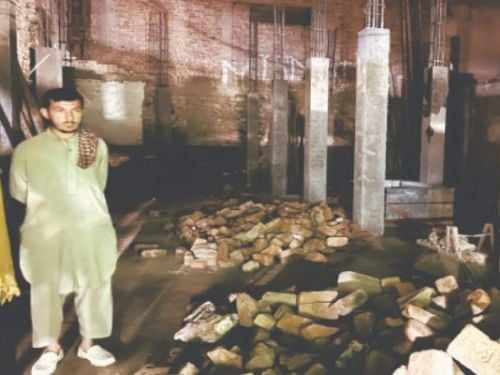
In another major victory for Hindus in the Gyanvapi case, the Allahabad High Court today refused to stop puja at the Vyas Cellar in the mosque complex which started yesterday as per Varanasi District Court order. The Gyanvapi Mosque committee had moved the High Court seeking a stay on the district court order, but the court refused to allow the plea.
However, the Allahabad High Court directed the state government to maintain law and order situation in the area.
The Muslim side had approached the High Court after Supreme Court refused to hear its plea on an urgent basis. The CJI had told them to move the High Court instead.
A bench of Justice Rohit Ranjan Agarwal heard the petition filed by the Anjuman Intezamia Masajid Committee challenging the Varanasi District Court’s January 31 order allowing Hindus to perform prayers in the Vyas Ji ka Tehkhana, the southern cellar of the Gyanvapi mosque. After hearing the both sides, the court refused interim stay on the district court order.
During the hearing, the court noted that the masjid committee has not challenged an earlier court order on January 17 appointing the District Magistrate as the receiver. In the 31 January order, the court ordered the receiver to facilitate the worship of Hindu deities found in the cellar. The court noted that the 31 January order was a consequential order of the earlier order, and therefore the earlier order should have been contested first.
The court told the masjid committee, “You haven’t contested the order dated January 17th, appointing the District Magistrate as the receiver. This is a consequential order…Amend your appeal.”
The judge noted that unless the January 17 order appointing a District Magistrate as court receiver is challenged, it may not be possible to hear the mosque committee’s challenge to the 31 January order.
Presenting its side, the Muslim side claimed that there is urgency in the matter, as puja has already started in the cellar. He objected to the fact that puja was started within hours of the court order, while the court had given 7 days to the administration to do it. Senior advocate SFA Naqvi appearing for the Muslim side claimed that there is chaos in the are due to ‘hasty’ implementation of the court order to allow puja.
He requested stay on the 31 January order, saying they will be amending the plea to challenge the 17 January order. But advocate Vishnu Sankar Jain appearing for the Hindu side objected to it, saying that as the plea is faulty, it is not maintainable.
Jain also stated that the current case of prayer in the Vyar Cellar is different from the ongoing main case on Gyanvapi, which is concerning the religious character of the Gyanvapi compound.
It is notable that on 31 January, Judge AK Vishvesha of the district court passed an order allowing Hindus to pray at the Vyas Ji ka Tehkhana. The court had directed the administration to remove the fence in front of the cellar and make necessary worship within 7 days.
Accordingly, the district administration removed the steel grill and created a pathway to the cellar on the night on 31 January, and allowed Hindu priests to enter the cellar to perform initial rituals, which were concluded by 3.30 AM. Later in morning, women from the Vyas family went to the cellar for puja. After that, daily five aartis are taking place in the cellar.
Source: OpIndia

 Rajasthan: Woman found hanging at a beauty parlour, Arshad, 3 others booked
Rajasthan: Woman found hanging at a beauty parlour, Arshad, 3 others booked Jadavpur Univ revokes permission to celebrate Ram Navami on campus after granting it
Jadavpur Univ revokes permission to celebrate Ram Navami on campus after granting it Chhattisgarh: Naxal top commander along with 28 other Naxals killed in a joint operation
Chhattisgarh: Naxal top commander along with 28 other Naxals killed in a joint operation Andhra Pradesh: Farooq kills mentally challenged Hindu man for insurance money
Andhra Pradesh: Farooq kills mentally challenged Hindu man for insurance money Pakistan: Ancient Hindu temple in Khyber Pakhtunkhwa demolished for commercial complex
Pakistan: Ancient Hindu temple in Khyber Pakhtunkhwa demolished for commercial complex 2 ISIS terrorists arrested in Germany for sexual abuse of minor Yazidi children
2 ISIS terrorists arrested in Germany for sexual abuse of minor Yazidi children